
Supercars of the 80s – Ferrari Testarossa
Step back into the 80s with the iconic Ferrari Testarossa, the symbol of style and speed that defined a decade

Alan Bradley, portrayed by the actor Mark Eden is arguably one of the most infamous villains in Coronation Street history.
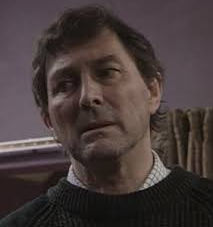
He first appeared on the show in 1986 and his storyline ran for three years, leaving an indelible impression on viewers due to his manipulative, abusive, and ultimately deadly behaviour.
Bradley was a master of deception. On the surface, he appeared as a charming and successful businessman, running a security firm and later a shop, making him seem like a reliable and stable figure. However, beneath the surface, Bradley was an individual with a dark side. He was not above exploiting and abusing others for his own gain, especially when his control was threatened.
His most memorable storyline involved his relationship with Rita Fairclough. He charmed Rita, taking advantage of her kindness and trust. Their relationship started to take a darker turn when Bradley forged Rita’s signature to take out a mortgage on her house without her knowledge. When Rita discovered his deception, he became physically abusive and even attempted to kill her, leading to one of the most dramatic and gripping storylines of the show.
Bradley was relentless and ruthless, exhibiting a level of malevolence rarely seen on the show. His downfall came as a result of his own desperation and recklessness. In trying to escape the consequences of his actions, he was hit by a tram in Blackpool, an end that was watched by millions of viewers and remains one of the most iconic moments in British soap history.
Alan Bradley’s character left a lasting impact not just because of his villainous actions, but also due to Mark Eden’s compelling performance. He portrayed Bradley’s manipulative charm and explosive anger with such conviction that the character remains one of the most memorable villains in the show’s history, even decades after his departure.
“Dirty” Den Watts, portrayed by the late Leslie Grantham, was one of the original characters when EastEnders first aired in 1985 and quickly became one of the soap’s most memorable characters and notorious villains.
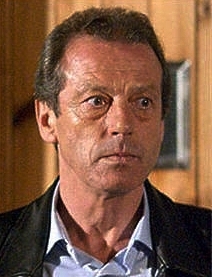
Den Watts was the landlord of the iconic Queen Victoria pub and the patriarch of the Watts family. He earned his nickname “Dirty Den” due to his various nefarious activities and adulterous affairs. Watts was the epitome of a lovable rogue, showing a charismatic exterior while harbouring a manipulative and selfish nature.
His storylines were often scandalous and included a complex web of lies, affairs, and criminal activities. One of Den’s most memorable moments came in the 1986 Christmas episode, when he served his wife Angie with divorce papers. This episode remains one of the most-watched in British television history.
Another significant aspect of Den’s character was his involvement with “The Firm,” a criminal organization. His ties with the criminal underworld often put him and his family in dangerous situations, culminating in his supposed death by a gunshot in 1989, only for him to make a sensational return from the grave in 2003.
However, it wasn’t just his villainous deeds that made Den Watts such a compelling character. Grantham’s portrayal brought a certain charm and complexity to the role that had audiences captivated. Despite his wrongdoings, there was a certain charisma about him that made him not just a villain, but also a character that viewers loved to hate.
Den Watts was certainly a villain, but he was also a deeply flawed individual whose actions were driven by greed, lust, and a desire for power. His impact on EastEnders, and British television as a whole, has been lasting and significant, with his character setting the bar for soap villains to come.
The Master, primarily portrayed by Anthony Ainley during the 1980s, is a rogue Time Lord, the same alien race as the Doctor. However, unlike the Doctor who often uses his powers to protect and help others, the Master is driven by a desire for power and control. His main goal is to rule the universe and he’s willing to go to extreme lengths to achieve it.
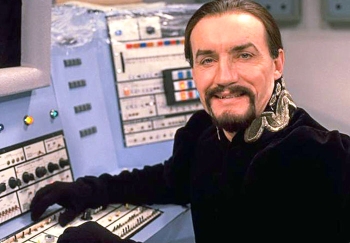
In the Master’s perspective, he sees himself as superior to other beings due to his Time Lord heritage. This arrogance fuels his desire for power and control, and he does not hesitate to manipulate, deceive, or destroy anyone or anything that stands in his way. He’s known for his intellectual brilliance, resourcefulness, and masterful schemes, which often mirror the Doctor’s own abilities, creating a thrilling rivalry between the two.
One of the unique aspects of the Master is his complicated relationship with the Doctor. Although they’re bitter enemies, they share a unique understanding and respect for each other due to their shared heritage as the last of the Time Lords. The Master often expresses a desire to rule the universe alongside the Doctor, an offer that the Doctor always refuses.
The Master’s character has undergone many transformations and regenerations throughout the series, but his nature as a cunning, relentless, and power-hungry villain remains constant. Despite his ruthless and destructive methods, the Master brings a certain charisma and charm to his villainy, making him one of the most memorable and enduring characters in the Doctor Who universe.
Alexis Colby, played by the legendary Joan Collins, is a central character in the American television series Dynasty, which aired from 1981 to 1989. Alexis is an iconic villainess in television history, known for her scheming, manipulations, and ruthless pursuit of wealth and power. Dynasty was not a UK-based show, but was widely viewed and Joan Collins is a British actresss.
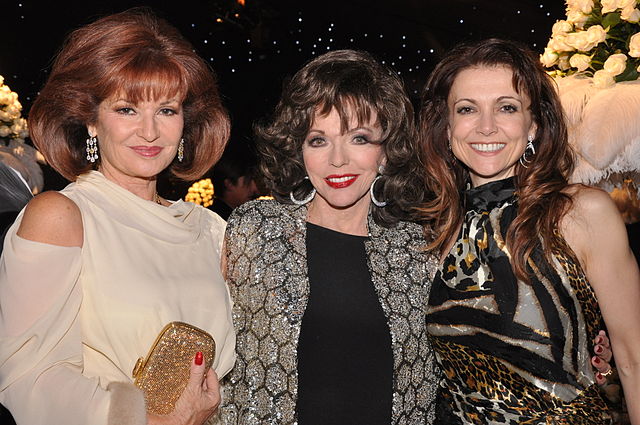
Making her entrance at the end of the show’s first season as the surprise witness at her ex-husband Blake Carrington’s trial, Alexis quickly established herself as a force to be reckoned with. She’s smart, cunning, and determined, never hesitating to use her charm and wit to get what she wants. This often pits her against other characters, particularly her ex-husband and his new wife, Krystle.
Alexis is a master manipulator, always plotting and scheming to maintain and expand her power. She’s unafraid to cross lines and to make enemies in the process. She often uses her wealth and social influence as weapons, whether to control business dealings or to enact personal vendettas.
Despite her villainous nature, Alexis also showcases vulnerability, especially in regards to her children, which adds complexity to her character. This, combined with her intelligence and determination, makes her a fascinating character to watch.
Perhaps one of the most notable aspects of Alexis is her unapologetic approach to life. She refuses to be sidelined or underestimated because of her gender. She embraces her ambitions and doesn’t shy away from battles, whether they’re in the boardroom or the bedroom.
Joan Collins’ portrayal of Alexis brought a unique flair to the role. Her commanding presence, distinctive fashion sense, and sharp wit made Alexis a memorable and entertaining character. Despite her ruthless tactics, many viewers found themselves captivated by her strength and tenacity.
In essence, Alexis Colby was a villainess par excellence, her character essential to the compelling, high-stakes drama that made Dynasty a cultural phenomenon during the 1980s.
J.R. Ewing, played by Larry Hagman in the American television series Dallas from 1978 to 1991, is an iconic character in television history. He stands as one of the most unforgettable villains, known for his ruthless business tactics, endless scheming, and manipulative nature.
Dallas was incredibly popular in the UK, much like it was in the United States and around the world. The show aired on BBC1 in the UK and it quickly became a hit, with millions tuning in each week to follow the scandalous lives of the wealthy Ewing family.
One of the most notorious moments in television history, the “Who Shot J.R.?” cliffhanger at the end of the show’s third season, attracted a massive viewership. The resolution of this storyline was reportedly watched by over 21 million viewers in the UK.
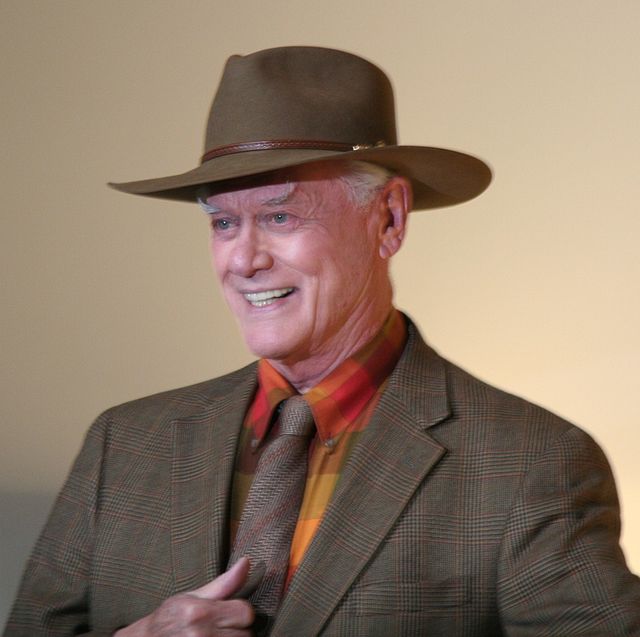
John Ross “J.R.” Ewing Jr. is a wealthy, oil tycoon who stops at nothing to safeguard and expand Ewing Oil, the family business. He’s a master manipulator, always plotting to outsmart his rivals, and doesn’t shy away from dirty tactics. J.R.’s actions often pit him against other characters, especially his younger, more ethical brother Bobby Ewing, and his wife Sue Ellen, whom he treats poorly.
J.R. is unapologetically self-serving and greedy, willing to lie, cheat, and backstab to get ahead. He often manipulates those around him, including his family, to meet his own ends. Despite these characteristics, J.R. isn’t a straightforward villain. He’s also a devoted son and a fiercely protective father, showing occasional moments of genuine affection and loyalty towards his family.
Arguably, one of the most significant moments in television history centered around J.R. Ewing – the infamous cliffhanger, “Who shot J.R.?”, from the show’s 1980 finale. This plotline encapsulates his role as a villain; he’d wronged so many people that anyone could have been behind the trigger.
Larry Hagman’s portrayal of J.R. was instrumental in establishing the character’s lasting impact. He infused J.R. with a charismatic charm that made him compelling to watch despite his villainous deeds. Hagman’s performance made viewers love to hate J.R., highlighting the complexities and contradictions within the character.
In essence, J.R. Ewing is a classic TV villain whose scheming, ambition, and charisma made him a central figure in Dallas’ popularity and success. His character set the bar high for villains in subsequent television dramas.
Terry Duckworth, played by Nigel Pivaro, is one of Coronation Street’s most notorious villains. First appearing in 1983 as the son of the beloved Jack and Vera Duckworth, Terry quickly developed a reputation as a troublemaker.
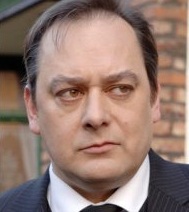
Terry Duckworth was the bad boy of the Street, showing no respect for law and order and frequently involving himself in criminal activities. His various stints in prison attest to his disregard for the rules, and his callousness often led to turmoil within the Duckworth family.
One of his most heinous acts was selling his own son, Tommy, to his ex-girlfriend Lisa and her husband. Despite the pleas of his parents, Terry showed no remorse over his actions. This heartless act cemented his place as one of the show’s biggest villains and caused a permanent rift between him and his parents.
Terry also showed a particular talent for manipulation, particularly of his loving parents, Jack and Vera. He frequently took advantage of their love and goodwill, leading them into disastrous financial situations and causing them immense emotional distress. Despite his continual betrayals, Jack and Vera often forgave him, hoping their son would eventually change.
Moreover, Terry was known for his womanizing ways and had numerous affairs, often juggling multiple women at the same time. His relationships were usually based on deception, and he showed little regard for the women he was involved with.
Despite his villainous deeds, Terry was a complex character. His moments of vulnerability and his deep-seated love for his parents added depth to his character, even though they were overshadowed by his manipulative and selfish behaviour.
Terry’s unscrupulous actions, callousness, and manipulative ways have made him one of the most enduring villains on Coronation Street. His character serves as a reminder of the darker side of human nature, even in the cosy setting of the Street.
Barry Grant, played by Paul Usher, is one of the most memorable characters from Brookside, a British soap opera that aired from 1982 to 2003. As the son of the middle-class Grant family, Barry is far from an upstanding citizen, cementing his reputation as one of the show’s significant villains through numerous nefarious deeds.

Barry Grant began as a bit of a rogue, but his character darkened significantly over time, turning him into one of the most notorious villains in soap history. His character was involved in various illegal activities, most prominently drug dealing and violent crime.
Barry’s treatment of women also adds to his villainous reputation. His numerous romantic entanglements are marked by manipulation and control. His abusive relationship with his wife Sue is a particularly striking example of his domineering and aggressive nature.
In spite of his villainous behaviour, Barry’s character was complex. His love for his family, especially his mother, showed a different side to his character, adding layers to his personality beyond the ruthless and criminal persona. However, these moments of vulnerability and compassion were far outweighed by his violent and criminal actions, marking him as a true soap villain.
In summary, Barry Grant’s character stands out for his ruthless ambition, violent behaviour, and complete disregard for the law. His actions created some of the most dramatic and controversial storylines in Brookside, leaving a lasting impact on British soap history.
Alan B’Stard, played by Rik Mayall in the satirical British sitcom “The New Statesman” (1987–1992), is indeed one of television’s most memorable villains. As the conservative MP for the fictional constituency of Haltemprice, B’Stard’s extreme greed, corruption, and lust for power drive the show’s narrative.
B’Stard is a self-serving character who only acts to further his interests, be it accumulating wealth, holding on to his parliamentary seat, or manipulating political events to his advantage. His complete disregard for ethical behaviour is displayed through the numerous fraudulent and often illegal schemes he concocts, ranging from tax evasion to election rigging.
One of B’Stard’s most despicable schemes involves him faking his own death to cash in on a life insurance policy, without any regard for the emotional toll on those around him. He also isn’t above using his influence to have others killed if they pose a threat to his schemes.
B’Stard’s relationships with others, particularly his wife Sarah, are characterised by deceit and manipulation. He continually has affairs and displays a total lack of respect or concern for his wife’s feelings or well-being. B’Stard also takes advantage of his constituents, showing interest in their welfare only when it benefits his political career.
Furthermore, B’Stard’s ambition knows no bounds. In one storyline, he devises a plan to overthrow the Prime Minister and seize power himself, using a series of machinations involving forged government documents, blackmail, and even an attempted assassination.
B’Stard is a quintessential TV villain. His unscrupulous actions, self-serving motives, and blatant disregard for morality make him a character that audiences love to hate, all while providing a satirical commentary on the extremes of political corruption.
Servalan, brilliantly portrayed by Jacqueline Pearce, is a defining character in the British science fiction television series “Blake’s 7” (1978-1981). As the Supreme Commander of the Terran Federation, and later self-declared President, Servalan is a ruthless and cunning adversary, marking her as one of the most memorable villains in science fiction television.
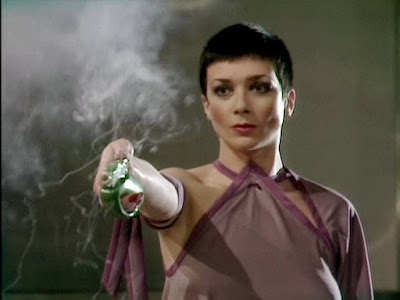
Servalan is characterised by her cold-blooded ambition, manipulation, and an unwavering desire for power. She is not hesitant to eliminate anyone who gets in her way or poses a threat to her control over the Federation.
One of her most chilling actions is the complete obliteration of the entire population of the planet Auron. Servalan releases a deadly pathogen in order to wipe out the planet’s populace and lay her hands on a unique cloning technology possessed by the Auronar people.
Her relationship with the renegade Kerr Avon, one of Blake’s allies, provides a complex dynamic to her character. While she has a somewhat romantic interest in Avon, she doesn’t hesitate to betray or manipulate him to achieve her goals.
Servalan’s ruthlessness is also evident in her seizing power in the Federation. Following a major galactic war, she takes advantage of the chaos and confusion to declare herself President, executing the previous council members and anyone who might challenge her leadership.
Despite her role as a villain, Servalan is a compelling character. Her fierce intelligence, charisma, and unpredictability add depth to her character and make her a formidable adversary. Her sophisticated and elegant demeanour, contrasted with her cutthroat tactics and lack of compassion, create a unique and memorable villain.
In summary, Servalan of “Blake’s 7” represents a classic TV villain. Her ruthless ambition, cunning manipulations, and unabashed quest for power make her a formidable antagonist and a captivating character.
Arnold Rimmer, played by Chris Barrie, is one of the main characters in the British science fiction sitcom “Red Dwarf.” While Rimmer is not traditionally a villain, his character traits often cause friction with the rest of the crew, and his actions occasionally place him in an antagonistic role.
Rimmer is characterised by his overbearing neuroticism, self-centredness, and lack of social skills. His pettiness and insistence on strict adherence to rules and regulations frequently lead to conflict with his shipmates. Rimmer is known for his compulsive lying, often creating grandiose and entirely false stories about his past to make himself look better.
One memorable instance of Rimmer’s worst behaviour occurs in the episode “Better Than Life,” when his negativity ruins a virtual reality game for the rest of the crew. The game, which allows each player to live out their fantasies, becomes a nightmare for everyone else when Rimmer’s self-loathing causes them all to be subjected to his personal hell.
Despite his many flaws, Rimmer is not without redeeming qualities. His personal struggles with insecurity and feelings of inadequacy add depth to his character and, at times, make him relatable. He also occasionally shows a softer side and has moments of genuine friendship with the rest of the crew, particularly Lister.
In “Me2,” Rimmer creates a duplicate of himself, leading to a scenario where his worst traits are magnified. The two Rimmers cannot get along, highlighting the character’s self-loathing and inability to tolerate his own flaws.
In conclusion, while Arnold Rimmer may not fit the traditional mould of a TV villain, his frequently antagonistic behaviour and the conflict his character traits cause make him a unique and memorable part of “Red Dwarf.”
Who were your favourite TV villains of the 1980s? Share your comments below:

Step back into the 80s with the iconic Ferrari Testarossa, the symbol of style and speed that defined a decade

Take a trip down memory lane with these 20 iconic board games and toys that defined our 1980s childhood in the UK.

Immerse yourself in nostalgia with this collection of iconic 1980s UK TV adverts – a true blast from the past!

Tina Turner, the Queen of Rock ‘n’ Roll, whose life and career became a symbol of resilience and triumph, has left an enduring legacy

1980 saw the first CND rallies, the Alton Towers theme park opening and the murder of John Lennon in New York. The Moscow Olympics was the sport highlight.
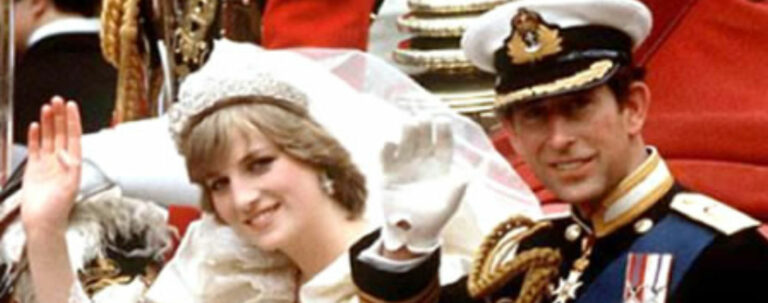
1981 saw the Royal Wedding, a summer of unrest in many cities, and sporting success for Aston Villa, Liverpool, Spurs. Oh, and the ZX81 was launched!
No Events